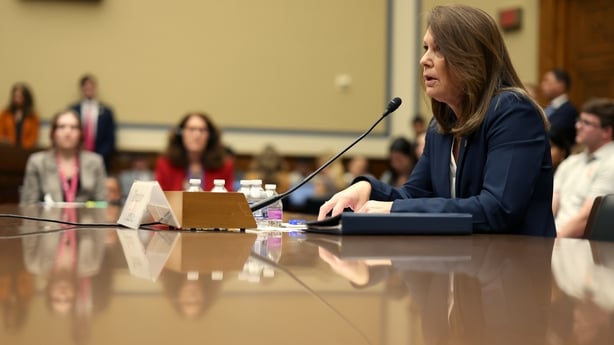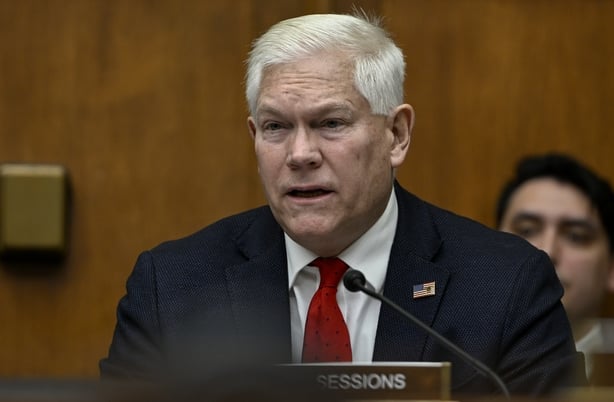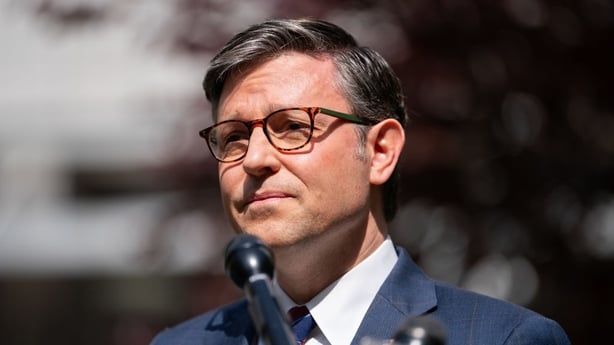US Secret Service Director Kimberly Cheatle rebuffed bipartisan calls to resign for security failures that allowed a would-be assassin to wound Republican presidential candidate Donald Trump and upset politicians by refusing to provide details about the incident.
The US House of Representatives Oversight Committee's Republican chair, James Comer, and top Democrat, Jamie Raskin, normally bitterly divided on most issues each called on Ms Cheatle to step down.
"This committee is not known for its model of bipartisanship and I think today we came together unanimously in our disappointment," Mr Comer told Ms Cheatle.
"We don't have that confidence that you can lead," he added.
Mr Raskin said Ms Cheatle had "lost the confidence of Congress at a very urgent and tender moment in the history of the country and we very quickly need to move beyond this."
Democratic Representative Gerry Connolly said that such incidents "highlight the fact that we are an increasingly polarised nation experiencing heightened political tensions".

During more than 4 hours of often contentious proceedings, Ms Cheatle called the 13 July shooting "the most significant operational failure at the Secret Service in decades," comparing the breakdown to the 1981 attempted assassination of former US president Ronald Reagan.
Ms Cheatle said: "We failed. As the director of the United States Secret Service, I take full responsibility for any security lapse."
But she repeatedly rebuffed calls to step down, saying at one point: "I think that I am the best person to lead the Secret Service at this time."
Democratic Representative Gerry Connolly said, "Unacceptable incidents like this one highlight the fact that we are an increasingly polarised nation experiencing heightened political tensions."
The hearing marked the first round of congressional oversight of the attempted assassination at an outdoor campaign rally in Butler, Pennsylvania.
Mr Trump was wounded in the ear, one rally attendee was killed and another injured.
The suspected shooter, 20-year-old nursing home aide Thomas Crooks, was killed by law enforcement.
It is not clear what his motive was for the shooting.
In the face of Republican claims that the Secret Service denied resources to protect Mr Trump, Ms Cheatle said security for the former president had increased ahead of the shooting.
"The level of security provided for the former president increased well before the campaign and has been steadily increasing as threats evolve," Ms Cheatle said.
She added that the Secret Service provided the security sought by the Trump campaign for the rally.

But Ms Cheatle repeatedly declined to answer questions from openly frustrated Republicans and Democrats about the security perimeter, what officials knew of potential threats and the decisions they made, and the suspicious behaviour of the suspect.
"Tell us what went wrong," Republican Representative Pete Sessions implored her.
"Tell us, and don't try and play a shell game with us," he added.
Ms Cheatle said she wanted to provide factual information but cited multiple ongoing investigations, including an internal probe due to be completed within 60 days.
Politicians of both parties rejected the idea of a 60-day delay and accused Ms Cheatle of stonewalling Congress.
"The notion of a report coming out in 60 days when the threat environment is so high in the United States, irrespective of party is not acceptable," Democratic Representative Alexandria Ocasio-Cortez.

On Wednesday, FBI Director Christopher Wray will appear before the House Judiciary Committee.
House Speaker Mike Johnson is also due to unveil a bipartisan taskforce to serve as an exus point for House investigations.
The House Judiciary Committee said last week that it has evidence the Secret Service was not properly resourced for Mr Trump's rally, because of staffing shortages created by a rival campaign event in Pittsburgh with Jill Biden and a NATO summit held days before in Washington.
Ms Cheatle told politicians that the first lady agency protects 36 individuals daily, as well as world leaders who visit the United States including Israeli Prime Minister Benjamin Netanyahu, who is due to address a joint session of Congress this week.
He vowed to serve through the end of his term on 20 January 2025.

